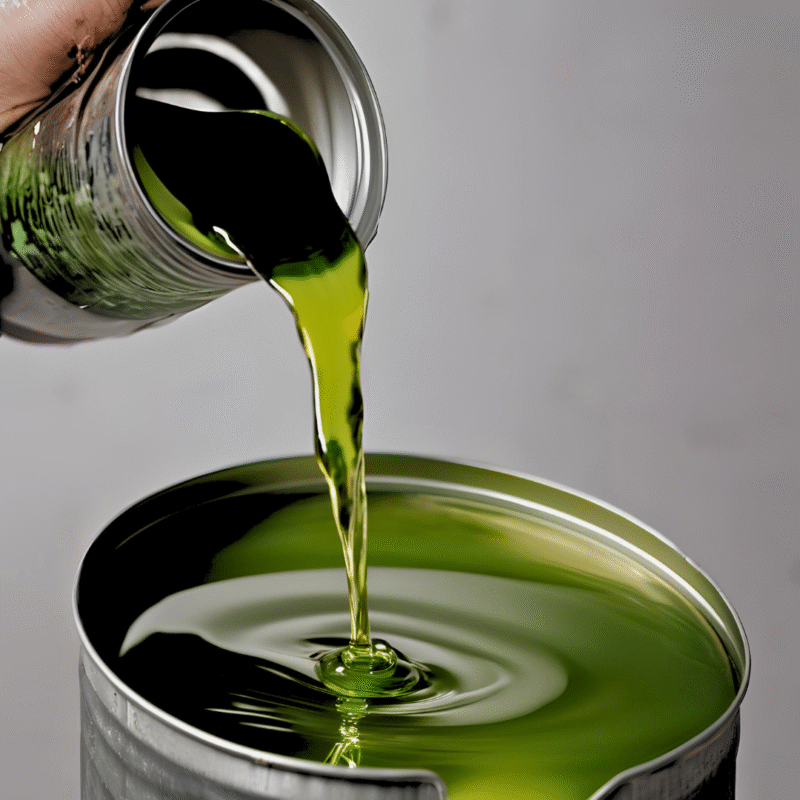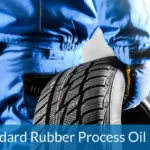🛢️ Standard Rubber Process Oil: Essential for Rubber Processing
Standard Rubber Process Oil (RPO) is a vital ingredient used in the compounding and processing of both natural and synthetic rubber. Acting as a plasticizer, extender, and softener, it enhances the processability, performance, and durability of rubber products. Among the various grades, Standard Rubber Process Oil (RPO) is a widely used category in the tire, tube, automotive parts, footwear, and molded rubber goods industries.
In this blog, we’ll explore the composition, types, benefits, and industrial applications of Standard RPO.
🔬 What Is Standard Rubber Process Oil?
Standard Rubber Process Oil (RPO) is a refined petroleum-based oil added during rubber manufacturing. It is used to:
-
Improve dispersion of fillers
-
Lower viscosity for easier mixing
-
Enhance flexibility and elongation properties
-
Reduce cost by replacing polymer content
Standard RPO is typically derived from aromatic, naphthenic, or paraffinic base oils and selected based on the end product requirements.
🧪 Types of Rubber Process Oil
🌑 1. Aromatic RPO
-
High solvency
-
Compatible with a wide range of rubbers (especially SBR, NR)
-
Used in tires, conveyor belts, and shoe soles
🟡 2. Paraffinic RPO
-
Higher viscosity index
-
Excellent oxidation stability
-
Ideal for EPDM rubbers, automotive parts, and hoses
🟤 3. Naphthenic RPO
-
Intermediate solvency
-
Good compatibility with synthetic rubber
-
Suitable for seals, profiles, and electrical insulations
📊 Comparison of RPO Types
| Type of RPO | Solvency | Oxidation Resistance | Main Uses |
|---|---|---|---|
| Aromatic | High | Moderate | Tires, conveyor belts, shoe soles |
| Paraffinic | Low | High | EPDM rubber, automotive parts, hoses |
| Naphthenic | Medium | Moderate | Seals, cables, insulation, molded goods |
Viscosity:
Standard RPO has a specific viscosity range that allows it to flow smoothly during rubber compounding and processing. The viscosity of RPO can be adjusted to meet the specific requirements of different rubber formulations and processing methods.
Compatibility:
Standard RPO exhibits excellent compatibility with various types of rubber, including natural rubber (NR), synthetic rubber (SR), and specialty rubbers. This compatibility ensures proper dispersion and blending of RPO with rubber compounds, resulting in consistent and uniform properties in the final rubber products.
Plasticizing Effect:
RPO acts as a plasticizer, improving the flexibility, elongation, and overall mechanical properties of rubber compounds. The addition of RPO allows for easier processing and enhances the flow characteristics of rubber during molding or extrusion processes.
Thermal Stability:
Standard RPO is designed to have good thermal stability, allowing it to withstand the high temperatures involved in rubber processing without significant degradation. This stability ensures that the properties of the rubber compound remain consistent throughout the manufacturing process.
Volatility:
RPO has a controlled volatility, meaning it does not readily evaporate or degrade under normal processing conditions. This property ensures that the RPO remains within the rubber compound, providing long-lasting performance and preventing premature aging or hardening of the rubber product.
Applications of Standard RPO
Standard RPO finds wide-ranging applications in the rubber industry, including:
Tire Manufacturing:
Standard RPO, is extensively used in tire manufacturing as a processing aid. It improves the dispersion of fillers, such as carbon black or silica, in the rubber matrix, resulting in enhanced reinforcement, improved wear resistance, and better grip of the tire.
Rubber Goods Production:
Standard Rubber Process Oil, is also employed in the production of various rubber goods, such as belts, hoses, seals, gaskets, and molded rubber products. It imparts flexibility, softness, and processability to the rubber compounds, allowing for easy shaping and forming of the final products.
Adhesives and Sealants:
Standard RPO is incorporated into rubber-based adhesives and sealants to enhance their bonding properties and improve their adhesion to different surfaces. It also helps to maintain the desired viscosity and consistency of the adhesive or sealant during application.
Industrial Rubber Products:
RPO is used in the manufacturing of industrial rubber products, including conveyor belts, rubber sheets, O-rings, grommets, and vibration dampers. It ensures proper processability, improves the physical properties of the rubber compounds, and imparts durability and resilience to the final products.
✅ Key Benefits of Standard Rubber Process Oil
-
🧴 Improves Processability: Enhances mixing and dispersion of fillers
-
💰 Cost Reduction: Acts as a polymer extender
-
⚙️ Boosts Mechanical Properties: Improves flexibility, elongation, and tear resistance
-
🔬 Customizable Grades: Available in different compositions based on application
-
🌡️ Thermal Stability: Withstands high-temperature molding processes
❓ Frequently Asked Questions (FAQ)
1. What is the main function of rubber process oil?
It serves as a plasticizer, softener, and processing aid to improve the physical and chemical properties of rubber.
2. Which industries use rubber process oil the most?
Primarily used in tire manufacturing, automotive parts, footwear, and molded rubber goods.
3. Is RPO harmful to human health?
Refined RPOs that are non-carcinogenic and REACH-compliant are safe for industrial use. Aromatic RPOs may pose risks without proper handling.
4. How is RPO added in rubber compounding?
It’s added during the mixing stage along with polymers, fillers, and vulcanizing agents.
5. What is the difference between standard and treated RPO?
Standard RPO is lightly refined, while treated RPO undergoes further refinement to reduce PAH content and improve environmental safety.
🏁 Conclusion- Standard RPO
Standard Rubber Process Oil plays a pivotal role in the rubber manufacturing process by offering superior flexibility, processing ease, and cost-effectiveness. Choosing the right grade—aromatic, paraffinic, or naphthenic—can make a significant difference in product quality and performance.
From tires and tubes to automotive components and footwear, RPO continues to be an essential material in driving rubber-based innovation.
From tire manufacturing to the production of rubber goods, adhesives, and industrial rubber products, Standard RPO plays a crucial role in enhancing the properties and processability of rubber materials. Its utilization ensures the production of reliable, durable, and high-performance rubber products that meet the diverse needs of various industries.
📣 Call to Pars Universal Bitumen
👉 Need High-Quality Standard Rubber Process Oil for Your Manufacturing Needs?
We in Pars Universal Bitumen, supply custom-formulated RPOs in aromatic, paraffinic, and naphthenic grades designed for performance and cost-efficiency.
📞 Contact us today for technical specs, safety data sheets (SDS), or volume pricing.
🛒 Request a Free Quote Now → rubber process oil quote
👉 Get a quote now to speak with our experts, request a technical data sheet, or receive a custom quote for Standard Rubber Process Oil for your Manufacturing Needs. For more information or to place an order, please contact PUB-Ltd sales team 📩 Contact Us Now.





